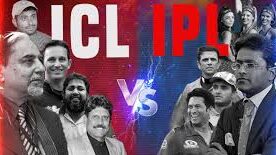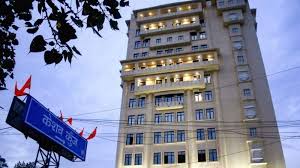
The Indian Premier League (IPL) is hailed as the most glamorous tournament in modern cricket — a fusion of sport, cinema, and corporate power, generating billions and commanding a global audience. But beneath its glittering surface lies a murky underworld — one riddled with corruption, match-fixing, illegal betting, political manipulation, and ties to the criminal underworld. What appears to be a celebration of cricket often masks deeper systemic decay.
Before IPL came into existence, there was the Indian Cricket League (ICL), launched in 2007 by Subhash Chandra’s Zee Entertainment. Though not recognized by the BCCI, the ICL was a pioneer — it introduced the franchise-based T20 format in India, attracted international players, and promised to elevate domestic talent. But rather than supporting the initiative, the BCCI waged war against it — banning players who joined, denying stadiums for matches, and applying pressure on sponsors to withdraw support. The ICL was labelled “unauthorized,” and within months, it began to collapse under institutional pressure.
In 2008, the BCCI — now led by Sharad Pawar as President and Lalit Modi as Vice-President — launched the Indian Premier League. It bore an uncanny resemblance to ICL in format, structure, and presentation. However, unlike the ICL, the IPL had the full backing of the BCCI, massive corporate sponsorships, and government support. Lalit Modi became the face of the IPL, using his political and business connections to attract Bollywood celebrities, big business houses, and international cricket boards. But soon after its meteoric rise, cracks began to appear in the IPL’s shiny armor.
In 2010, Lalit Modi was suspended by the BCCI on charges of financial irregularities, money laundering, bid-rigging, and awarding media rights without proper tendering. He fled to London and has since remained there, evading Indian authorities. The Enforcement Directorate and Income Tax Department filed multiple cases against him, alleging violations of FEMA and Prevention of Money Laundering Act (PMLA).
Then came the infamous 2013 spot-fixing scandal that shook the very foundation of the IPL. Rajasthan Royals players S. Sreesanth, Ankeet Chavan, and Ajit Chandila were arrested by Delhi Police for accepting money from bookies to concede runs during matches. Chandila was caught telling a bookie the exact ball he would bowl a no-ball on. The Delhi Police tapped conversations between players and bookies, exposing a massive nexus. Among the accused was Gurunath Meiyappan, son-in-law of then BCCI President N. Srinivasan and Team Principal of Chennai Super Kings. He was arrested and charged with betting and passing team information to bookies. Bollywood actor Vindoo Dara Singh was also arrested for acting as a middleman between bookies and players.
The scandal led to a Supreme Court-monitored probe. Justice Mukul Mudgal Committee and later the Justice R.M. Lodha Committee were formed to investigate the matter. As a result, Chennai Super Kings and Rajasthan Royals were suspended for two years. Sreesanth and others were banned, although some bans were later lifted. The Lodha Committee also recommended wide-ranging reforms in the BCCI, many of which are still pending implementation.
In recent years, the rise of online betting apps like Mahadev Book, Lotus365, and FairPlay has added a new layer to the IPL’s underbelly. Mahadev Book, in particular, has been under intense scrutiny by the Enforcement Directorate and various state police departments. Allegedly operated from Dubai by fugitives Sourabh Chandrakar and Ravi Uppal, Mahadev Book offers illegal betting on cricket matches, including the IPL. Multiple FIRs allege that the app has links with celebrities, politicians, and even cricketers. The ED claims the app uses a complex web of shell companies, fake identities, hawala networks, and encrypted communication to move and launder money.
In 2023, Chhattisgarh Police unearthed that Sourabh Chandrakar spent ₹200 crore on his wedding in Dubai, which was attended by multiple Bollywood celebrities, paid allegedly via illegal funds. The ED is also probing whether the money from betting apps is being used to fund films, events, and properties in India. Several celebrity brand ambassadors and influencers who promoted these apps are now under the scanner. There are allegations that betting money is being funneled into film productions and even IPL franchises through dummy investors.
Despite these recurring scandals, the IPL continues to grow — more viewership, more teams, bigger sponsorships. The BCCI maintains that the league is clean and that strict anti-corruption protocols are in place. However, the lack of transparency, refusal to allow independent regulators, and slow pace of legal proceedings cast doubt on such claims. Whistleblowers allege that politically connected bookies operate with impunity, shielded by their networks and money power.
The victims in this game of greed are not just the fans or the sport — but also young cricketers who dream of making it big. When merit takes a backseat to manipulation, the very spirit of the game is betrayed.
The Indian Premier League is a marvel of modern entertainment and sporting innovation. But unless the rot is addressed from within, unless accountability becomes non-negotiable, and unless the nexus between crime, politics, and cricket is broken, the IPL risks becoming a monument to scandal rather than sport.






